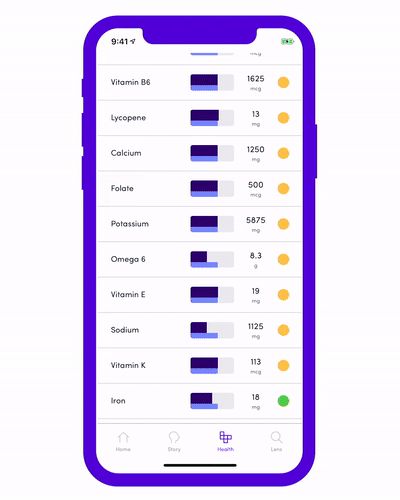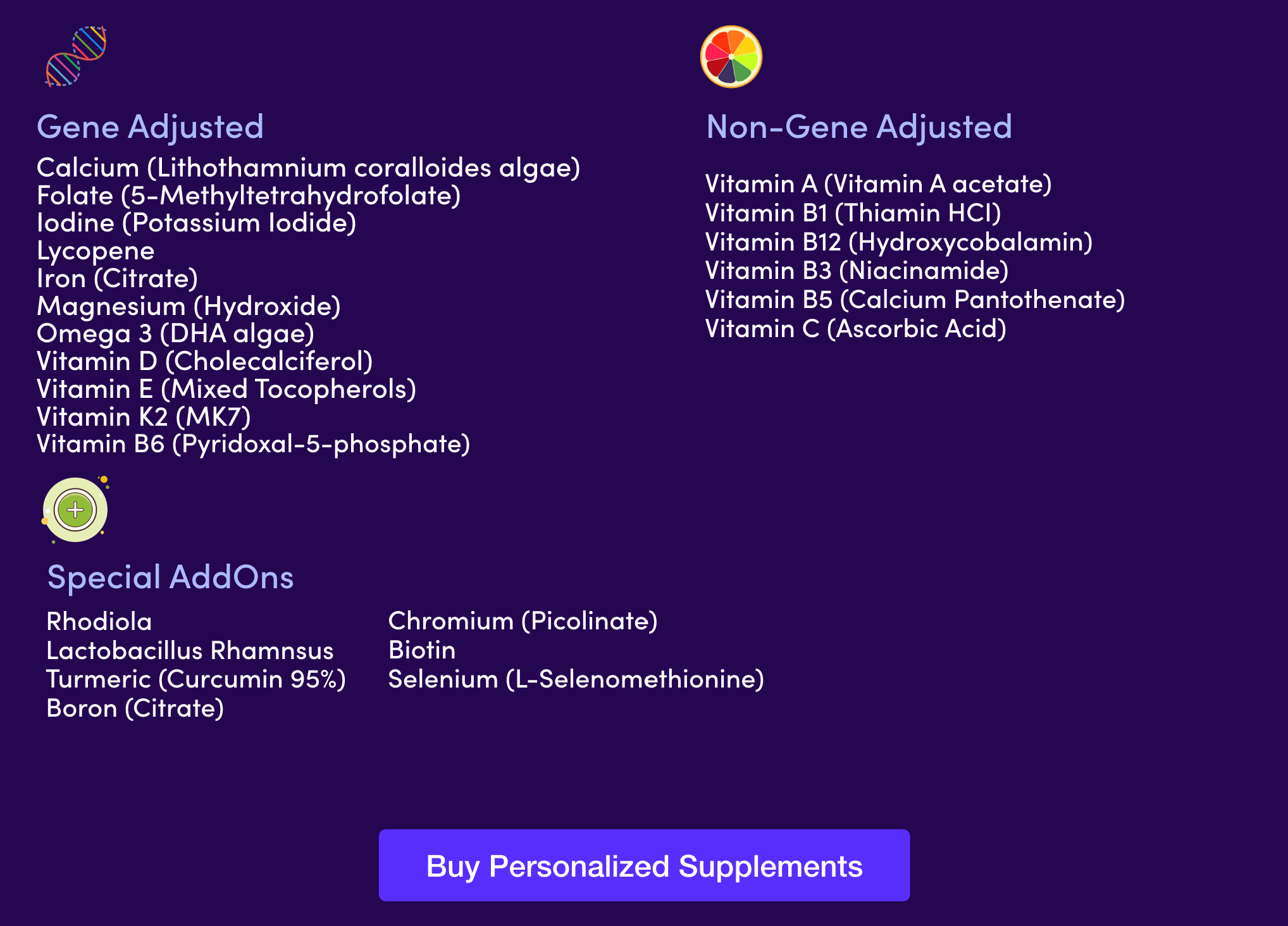Vitamin B6 is a natural compound that plays a number of different roles within the human body. This is a water-soluble vitamin, which means it is able to dissolve in water and does not need to be consumed with fat content for absorption. The vitamin is available in different forms and can be obtained from food, as well as supplements. In this guide, we look at what vitamin B6 is, the different forms of the vitamins, the functions it plays in human health, and how genes may impact the intake of this nutrient.
What Is Vitamin B6?
Vitamin B6 has various roles in the body. It exists in different forms, each with its own unique role. Overall, the vitamin is involved in over 100 different enzyme reactions in the body, which contributes to the metabolism of macronutrients like protein, carbohydrates, and fat. The vitamin is also critical for the production of red blood cells.
The different forms of vitamin B6 include:
- Pyridoxine
- Pyridoxal
- Pyridoxamine
- Pyridoxal 5’ phosphate (PLP)
- Pyridoxamine 5’ phosphate (PMP)
PLP and PMP are considered active coenzymes forms of this particular vitamin. These two types of vitamin B6 also play a role in amino acid metabolism, and they are also essential for the metabolism of lipids, as well as carbohydrates.
Various forms of the vitamin are also known to play a role in the regulation of the immune system. Hemoglobin formation and the glycogenolysis and gluconeogenesis processes also rely on the nutrient.
What Are The Benefits Of Vitamin B6?
The consumption of vitamin B6 in appropriate amounts can produce a number of potential health benefits in the human body. When it comes to taking this vitamin in supplement form or including more foods that are rich in vitamin B6, it is important to note that benefits may not become present when the human body already has appropriate levels of the vitamin. When there is a possible deficiency of vitamin B6, however, then increasing the intake of the nutrient may yield the expected benefits we detail below.
-
Improved Mood - Vitamin B6 plays a role in the production of neurotransmitters. Some of the neurotransmitters that rely on the presence of this vitamin are involved in the regulation of mood. This vitamin may help to increase the production of dopamine, as well as gamma-aminobutyric acid. This may yield an improvement in your mood. A reduction in symptoms associated with depression may also be experienced.
-
Improved Brain Health - Studies have found that the accumulation of homocysteine in the blood leads to an increased risk of developing Alzheimer’s disease, as well as cognitive impairment. Vitamin B6 may help to reduce levels of homocysteine that is present in a person’s blood.
Other potential benefits that vitamin B6 supplementation could yield include:
- Could increase hemoglobin production and, in turn, reduce the risk of anemia
- Could be useful in treating PMS-related symptoms
- Might help to reduce nausea in pregnant women
- May have a protective role in the heart and prevent arteries from becoming clogged
Your Genes And Vitamin B6
While vitamin B6 dissolves in the intestines and is then absorbed into the blood, it is important to realize how exactly the body uses the nutrient. Studies have found that there is a strong link between the breakdown and utilization of vitamin B6 and the ALPL gene.
In another study, it was found that the ALPL gene differs from one person to the next. In some people, this particular gene may lead to an increased bioavailability of certain vitamin B6 forms, while others may rather experience a reduced bioavailability due to the makeup of the ALPL gene. Thus, this is an important marker to be taken into consideration when it comes to determining an appropriate dose of vitamin B6 for a particular individual.
You can figure out your Vitamin B6 risk by uploading your DNA data to Gini.
Key Takeaways
Vitamin B6 has an important role to play in red blood cell production, as well as the metabolism of macronutrients. The nutrient also plays a part in neurotransmitter production.
You can now get gene adjusted vitamins which includes B6, as part of our personalized supplementation.
This essential vitamin needs to be obtained from external sources, as the body is unable to produce it. Adequate intake of vitamin B6 has been linked to multiple advantages. And understanding how much of the nutrient is needed due to the role that your genetics play can make all the difference.






